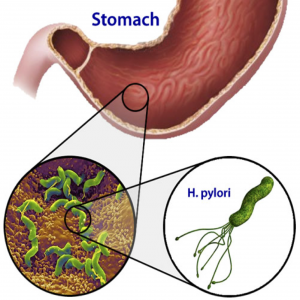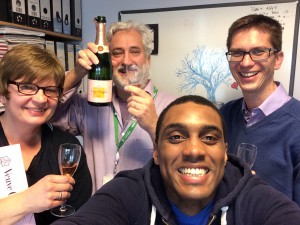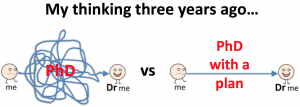June 2, 2015, by paxnh1
The squiggly blue line
Naim Hage, final year PhD student reflects on his PhD journey.
I just plucked out my first grey hair, which I am definitely attributing to doing a doctoral degree. After 3+ years of hard work, it’s scary exciting to know that I have only just scratched the surface of my discipline. As I steadily approach the end of my PhD life, I can’t help but reflect on the most challenging and enriching experience I’ve ever had…
Like others, I like to partition research into two phases. 1) Basic – when we investigate how things work. 2) Translational – when we innovate solutions to problems. One of the things I’ve found refreshing about being in the School of Pharmacy is that we advance science by doing research in both areas. When I joined, I chose a translational project with well-defined aims and objectives. I loved the sound of the project: it was a little whacky, undoubtedly challenging, and best of all, there was already a plan in place. You see, as an undergraduate and pre-registration pharmacist, all I focused on was passing exams, so picking a project with a “gameplan” seemed like the safest option to me as I thought it meant I wouldn’t have to deal with the stress of tapping into the creative compartment of my brain.
Three years and hundreds of experiments later, I’ve realised just how much I digressed from that gameplan. Luckily, my “thinking” depicted in the cartoon above was wrong! Picking a project with a gameplan definitely didn’t mean I would miss out on all the iterative idea generation that doctoral students naturally become good at. That’s what I’ve come to realise that squiggly blue line represents in the cartoon. To me, each kink is like a different thought or idea for your research. In my case, I had lots of kinks. My project was actually meant to be about developing a drug delivery vector that uses an adhesion protein from the gastric pathogen H. pylori to target nanoparticles to the gastric mucosa (for several beneficial reasons). Instead of doing that, I followed the science and researched how this protein actually works in H. pylori. So ultimately, the majority of my research has ended up being basic rather than translational…

“It’s your PhD, research what you want”. I heard that when I first started my project but I genuinely didn’t think it applied to changing a project aim or the type of research you do – probably because I wasn’t ready to hear about autonomy when I didn’t have a clue what an adhesion protein was. But now, in my grey-haired opinion, a doctorate is most rewarding when you embrace the squiggliness of your path. The best part is that my supervisors aren’t disappointed that I didn’t work towards my original aim. In fact, it’s quite the opposite!

About the blogger
Naim Hage is a final year PhD student in the Centre for Doctoral Training in Targeted Therapeutics. He did his undergraduate degree in Pharmacy and now specialises in molecular and structural biology / nanotechnology.
No comments yet, fill out a comment to be the first


Leave a Reply